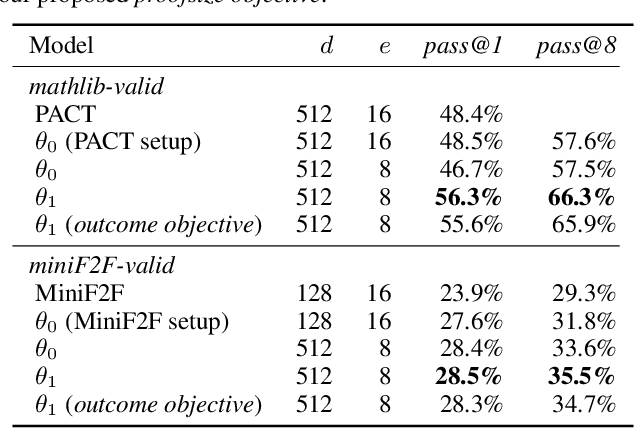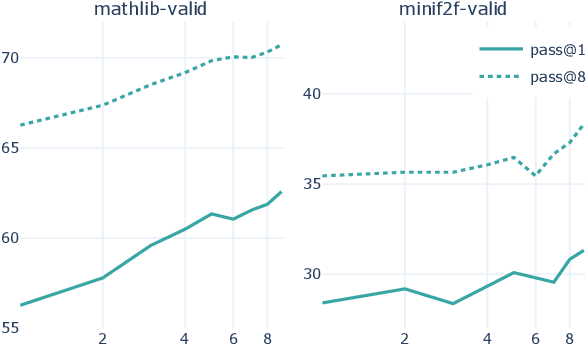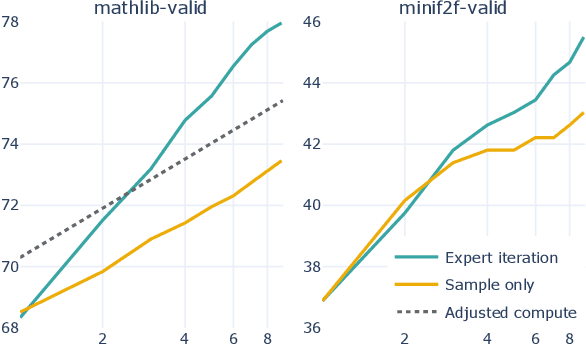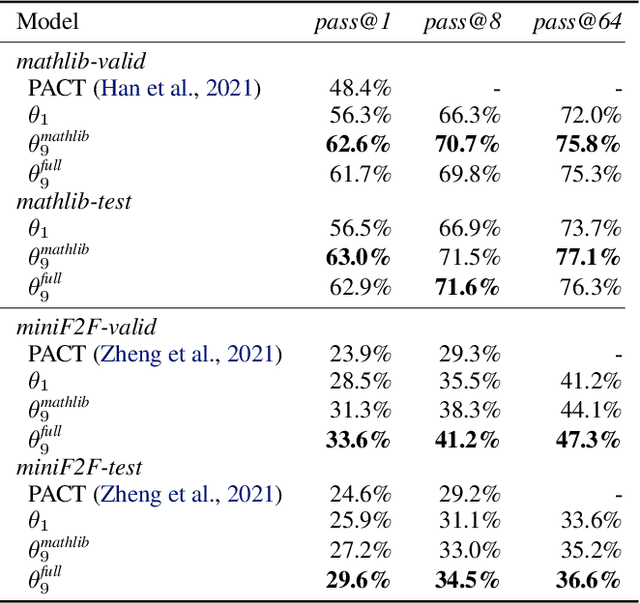Mantas Baksys
MiniF2F-Dafny: LLM-Guided Mathematical Theorem Proving via Auto-Active Verification
Dec 11, 2025Abstract:We present miniF2F-Dafny, the first translation of the mathematical reasoning benchmark miniF2F to an automated theorem prover: Dafny. Previously, the benchmark existed only in interactive theorem provers (Lean, Isabelle, HOL Light, Metamath). We find that Dafny's automation verifies 99/244 (40.6%) of the test set and 109/244 (44.7%) of the validation set with empty proofs--requiring no manual proof steps. For problems where empty proofs fail, we evaluate 12 off-the-shelf LLMs on providing proof hints. The best model we test achieves 55.7% pass@4 success rate employing iterative error correction. These preliminary results highlight an effective division of labor: LLMs provide high-level guidance while automation handles low-level details. Our benchmark can be found on GitHub at http://github.com/dafny-lang/miniF2F .
Kimina-Prover Preview: Towards Large Formal Reasoning Models with Reinforcement Learning
Apr 15, 2025Abstract:We introduce Kimina-Prover Preview, a large language model that pioneers a novel reasoning-driven exploration paradigm for formal theorem proving, as showcased in this preview release. Trained with a large-scale reinforcement learning pipeline from Qwen2.5-72B, Kimina-Prover demonstrates strong performance in Lean 4 proof generation by employing a structured reasoning pattern we term \textit{formal reasoning pattern}. This approach allows the model to emulate human problem-solving strategies in Lean, iteratively generating and refining proof steps. Kimina-Prover sets a new state-of-the-art on the miniF2F benchmark, reaching 80.7% with pass@8192. Beyond improved benchmark performance, our work yields several key insights: (1) Kimina-Prover exhibits high sample efficiency, delivering strong results even with minimal sampling (pass@1) and scaling effectively with computational budget, stemming from its unique reasoning pattern and RL training; (2) we demonstrate clear performance scaling with model size, a trend previously unobserved for neural theorem provers in formal mathematics; (3) the learned reasoning style, distinct from traditional search algorithms, shows potential to bridge the gap between formal verification and informal mathematical intuition. We open source distilled versions with 1.5B and 7B parameters of Kimina-Prover
Formal Mathematics Statement Curriculum Learning
Feb 03, 2022



Abstract:We explore the use of expert iteration in the context of language modeling applied to formal mathematics. We show that at same compute budget, expert iteration, by which we mean proof search interleaved with learning, dramatically outperforms proof search only. We also observe that when applied to a collection of formal statements of sufficiently varied difficulty, expert iteration is capable of finding and solving a curriculum of increasingly difficult problems, without the need for associated ground-truth proofs. Finally, by applying this expert iteration to a manually curated set of problem statements, we achieve state-of-the-art on the miniF2F benchmark, automatically solving multiple challenging problems drawn from high school olympiads.
 Add to Chrome
Add to Chrome Add to Firefox
Add to Firefox Add to Edge
Add to Edge